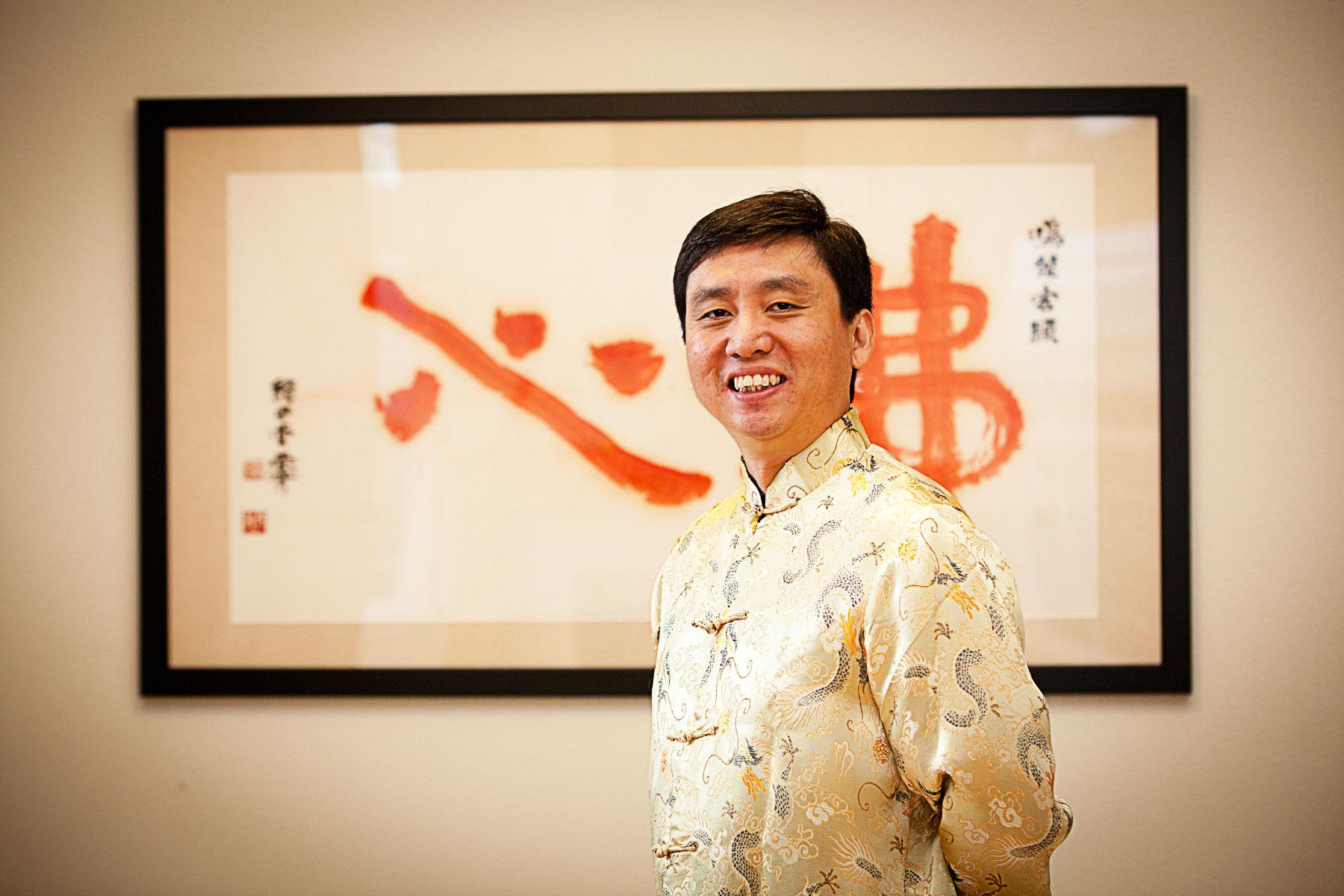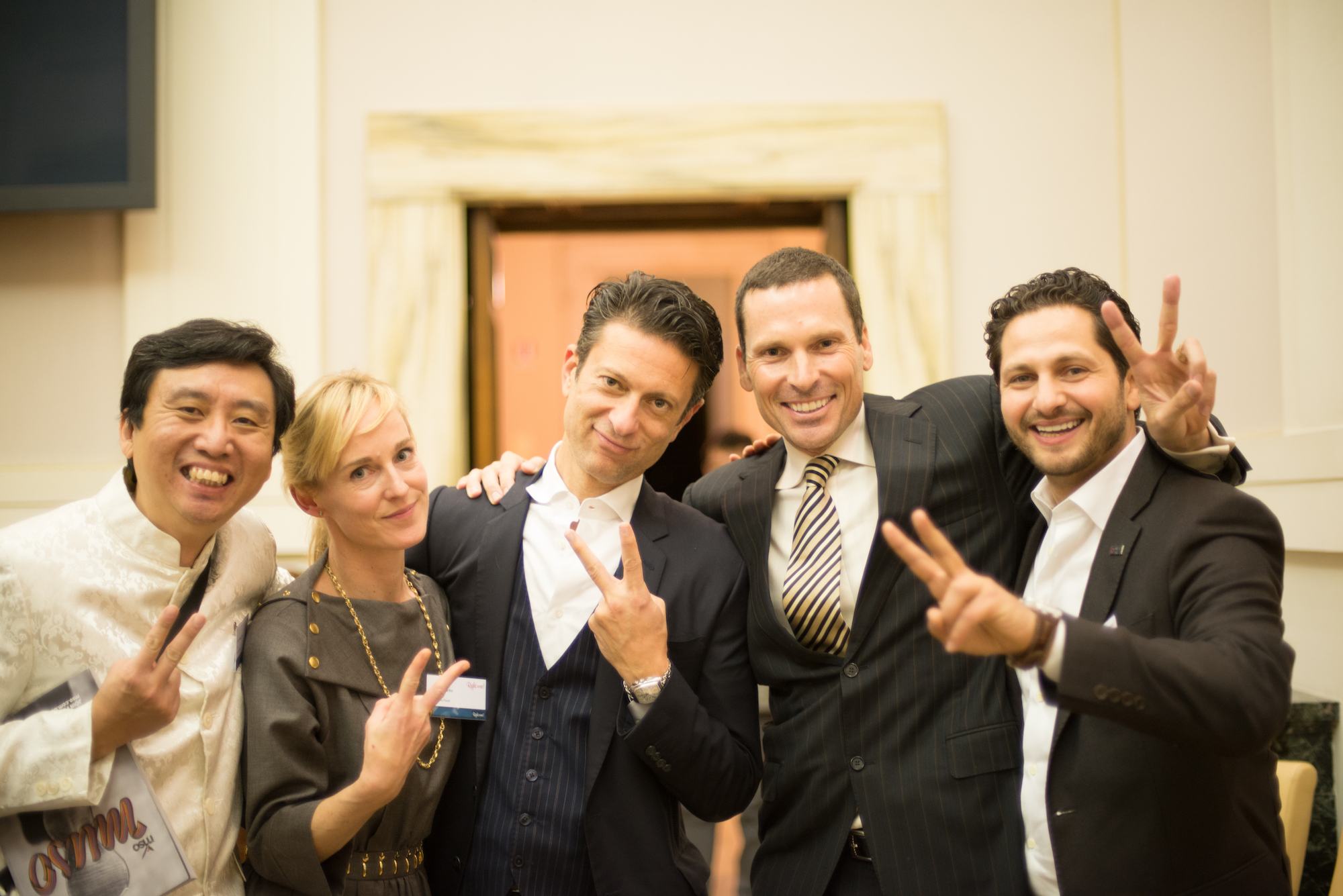
Image credit: Tan Chade Meng.
Tan Chade Meng, 46, retired from Google last year after working there for 15 years. He then set out to meditate for at least three hours a day and, in his words, “create the conditions for world peace.”
A year later, he isn’t much closer to achieving his meditation goal. But he’s tending ever more passionately to his other, more lofty, aim.
Back in Singapore from California for a month’s holiday, Tan, who was the first Singaporean hired by Google, says he’s managing to meditate for only about an hour a day. He spends the rest of his time exploring and investing in world-changing projects. One such endeavor is a Vatican tech accelerator.
“Isn’t it cool for the Vatican to start a tech accelerator? It’s really serious about social impact investing, leveraging on entrepreneurs to solve climate change problems,” he said. He is one of its seven founders.
Tackling climate change
Collectively, they have raised about US$2 million for the Rome-based accelerator, called the Laudato Si’ Challenge 2017, which is set up to tackle climate change-related issues such as poverty, food, clean water, and conservation.
Accelerators and incubators are popping up everywhere. While a few do uncover good technologies and business ideas, many organizations pay lip service to the call for innovation. The Laudato Si’ Challenge may do better with Pope Francis pushing the climate change agenda.
It is unique as an initiative because religious institutions seldom involve themselves with tech accelerators or incubators. There is also a unique payoff: startups not only chase profitability and growth – they will contribute to a better world.

Founding partners of the Laudato Si’ Challenge: (From left) Tan Chade Meng, Caitlin Sparks, Ibrahim Al Husseini, Eric Harr, Ahmad Ashkar. Image credit: Tan Chade Meng
Laudato Si’, or “praise be to you,” is the title of Pope Francis’ second encyclical, which is a letter the Pope sends to all bishops of the Roman Catholic Church. Subtitled “On Care of Our Common Home,” it calls for international action to save the planet.
The accelerator has awarded US$100,000 apiece to nine teams from Europe, Africa, China, and the US. Each startup also receives virtual mentoring from investors and entrepreneurs. In December, they “graduate” in a pitching session that will be attended by an international audience of investors who may select startups for follow-on funding.
Though Tan has invested in private equity funds before, this is his first investment in an accelerator.
In an exclusive interview with Tech in Asia, he explains why the accelerator is important: “To solve big problems, we have to rely on market forces, not on charity.”
“We need to find entrepreneurs who are solving big problems. We combine this with the moral authority of the church and our resources to create a force for the good of the world.”
“Surreal and cool”
It began with the Vatican inviting Tan and about two dozen entrepreneurs, investors, and philanthropists to a three-day conference in Rome in November last year.
He said: “We discussed how to use money for social impact. There were group discussions; everyone threw in ideas on what to do. A few ideas were tabled, one of which was the tech accelerator.”
A highlight of the whole experience was staying in the Vatican guest house. “It’s a huge building, there are common facilities for meal times and stairways used by everyone,” he said.
An admirer of Pope Francis, Tan had hoped he might run into him in the guest house. The leader of the Catholic Church has chosen to live there instead of the palatial papal quarters.
“I saw the Pope, but I couldn’t get close because he was surrounded by guards. Security was very tight,” he said.
Another highlight of his Vatican experience was the mass that was held to launch the accelerator. Praying at St Peter’s Basilica, next to St Peter’s crypt, was “so surreal and cool,” he added.
I saw the Pope, but I couldn’t get close because he was surrounded by guards
Meanwhile, in Vermont on the east coast of the US, Tan has started a “zencubator,” a two-in-one concept where a training monastery is co-located with a tech incubator. About a dozen novice monks have started training in what Tan described as the “alpha version” of the zencubator. He expects them to practice rigorous meditation. The other half will be used by startups who are building their new business ideas.
Tan expects the two groups of people to mix freely and in the process create a generation of wise and compassionate entrepreneurs.
“I see no conflict between the two groups. In the core, you’re slow; on the outside, you’re moving fast. This is the optimum performance for people. The commonality is in mindfulness, calmness, kindness, and compassion – good traits for entrepreneurs.”
Tan hopes to double the intake next year. A second facility is being planned in California. He expects to train a million new-generation “zentrepreneurs” in his lifetime.
Making movies
The ex-Googler and software engineer has also begun making movies. “Yes, how cool is that?” he said.
His first documentary, called Walk With Me, is about the art of mindfulness and features Vietnamese Zen master Thich Nhat Hanh. Narrated by Benedict Cumberbatch, it is scheduled to open in theaters by year-end. Tan is the executive producer, meaning he funded it for an undisclosed sum. He aims to submit the documentary for the Cannes Film Festival and hopes to “walk the red carpet” there next year.
I’m gunning for the Oscars
He is even more excited about the second documentary he is working on, where he is both scriptwriter and executive producer. Scheduled for release next June, it is about the Dalai Lama and science and is provisionally titled Dalai Lama: Scientist. He is still writing the script and hopes to start production soon.
“I’m gunning for the Oscars,” he added.
Tan had asked the Dalai Lama what legacy the Tibetan leader wanted to leave behind, and he said simply: “Science.”
Tan added: “The Dalai Lama has been curious about the connection between science and meditation. He has collaborated with scientists who wanted to research on the effects of meditation on the functions of the brain.”
Tan said that Buddhism is science-friendly, adding that the Buddha had told his students not to accept things just because he said so but to prove that they are applicable to life. Tan likes this concept because it is logical, which appeals to his engineering background.
Whatever Tan does, he doesn’t believe in thinking small.
He’s a Buddhist working with the Vatican, an ethical and enlightened software engineer molding a whole new breed of mindful entrepreneurs with his zencubator, and an investor seeding technological innovation underpinned with goodness in an effort to save the planet.
He summed up his life’s work as democratizing enlightenment, “which is the enlightenment of the people, for the people, as embodied by the people.”
He has set himself a challenging job of making world peace happen. One can only hope that he succeeds.
This post Why Google’s Jolly Good Fellow, a Buddhist, started an accelerator with the Vatican appeared first on Tech in Asia.
from Tech in Asia https://www.techinasia.com/googles-jolly-good-fellow-started-accelerator-vatican-hes-buddhist
via IFTTT
No comments:
Post a Comment